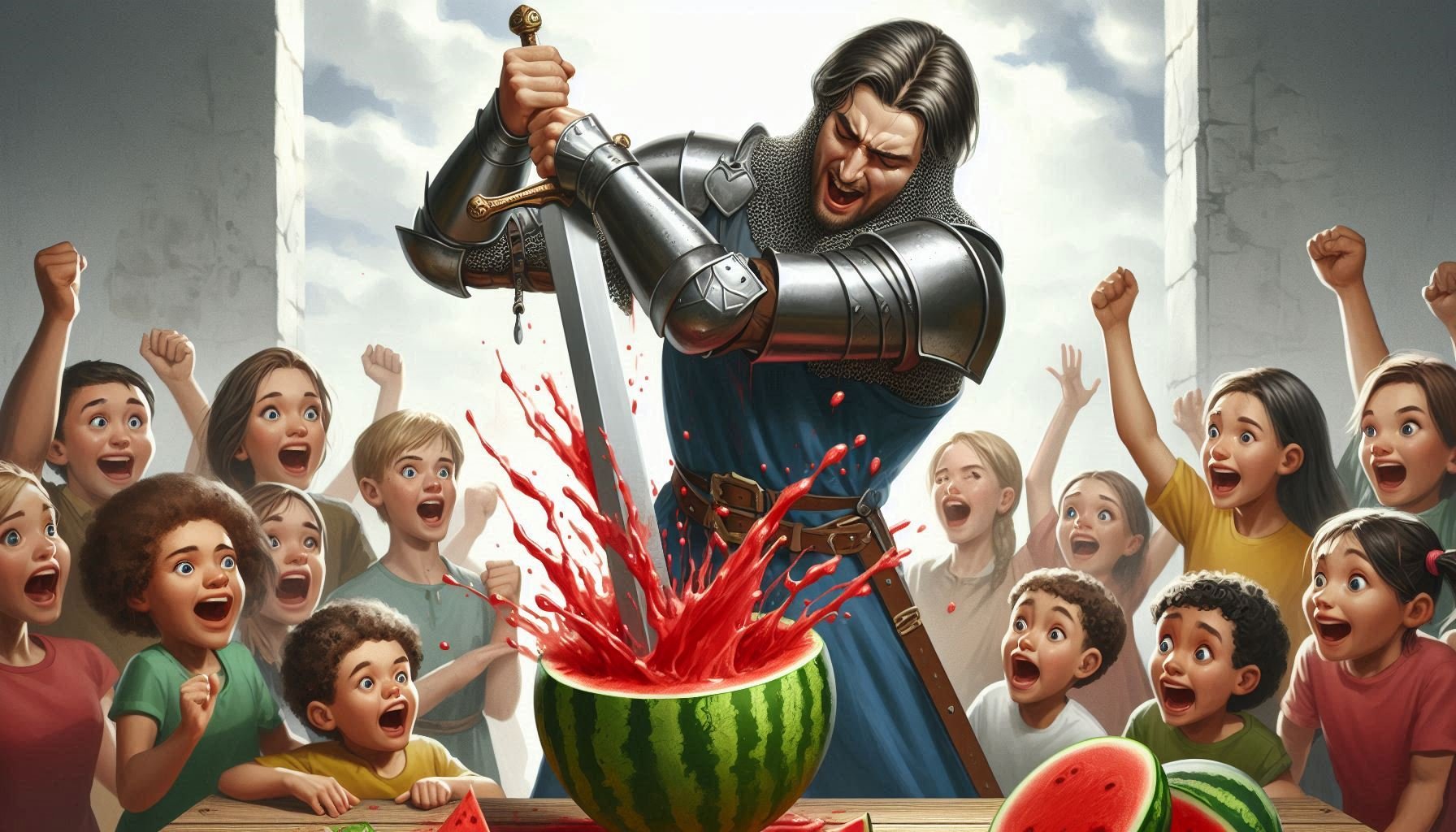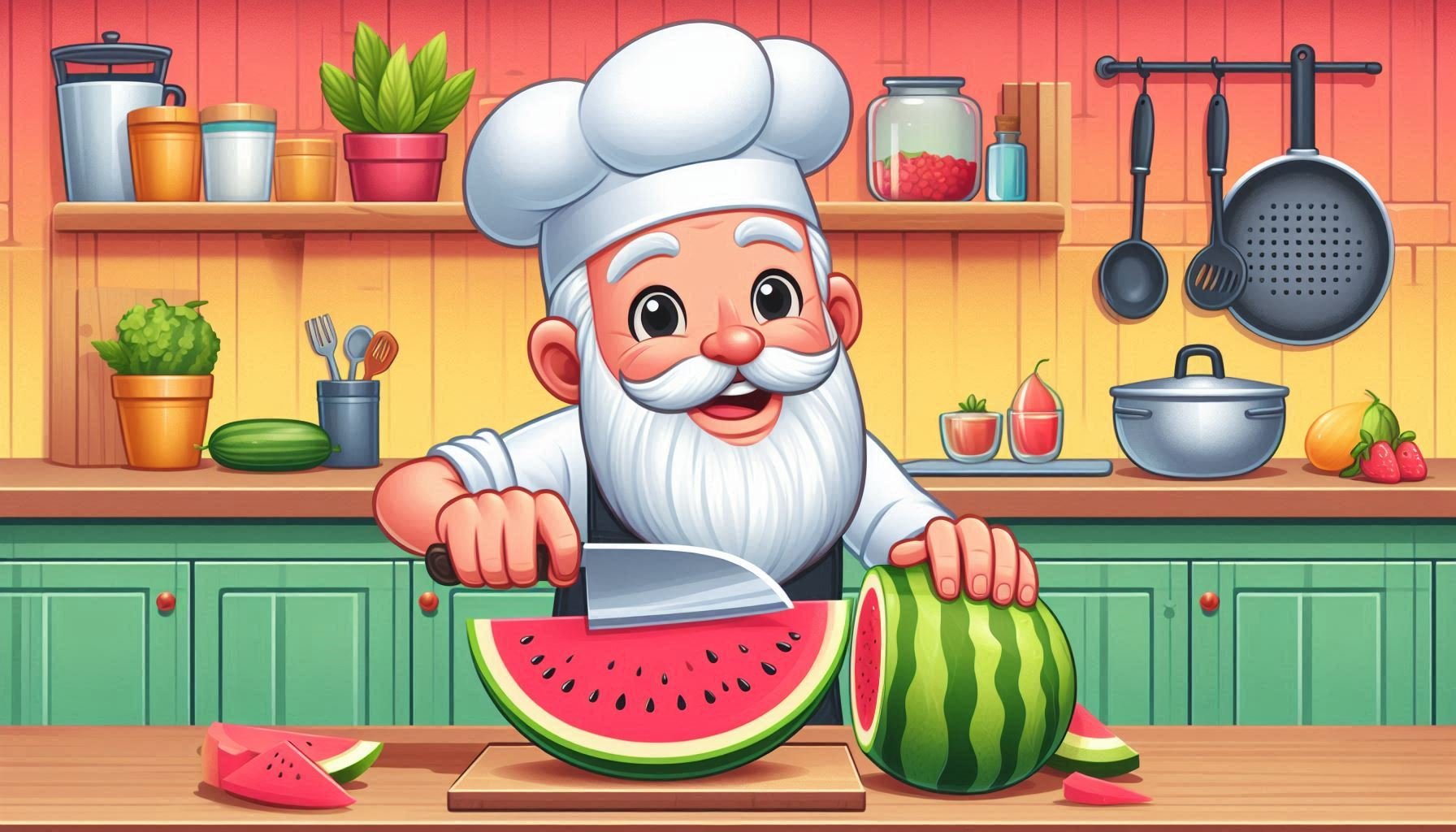3 Reasons to Cut My Game’s Scope
AI has no idea what “cutting video game scope” means, so I had it make an image of someone cutting beef.
(heads up, this whole blog will be full of cutting-related AI garbage art.)
Soooo I said I wasn’t going to do a blog post this week, but I just felt like I had to hop on here really quick and make a little posty post about cutting the scope of my game. It’s going to get really game dev focused here, so apologies if you’re hoping for Boardwalk Builder updates and content. That’s coming, but not today.
So Boardwalk Builders is getting too big. I have too many ideas. They are all so awesome, and it didn’t help that I’ve been playing Manor Lords for the past week and filling my head with the kind of magic that game is made with.
Every time I sat down to work on the GDD I would add scope. New shops, employee types, unlockables, etc. It was all great! The only problem is I don’t have that kind of time! The game I was scoping was going to take two to three years, easily, to finish.
So instead, I’m cutting scope! I’m focusing on what I think will be the most fun systems for the game and leaving it at that. Sure, it would be really cool to add tons of depth and complexity to the game, but I’m also just one guy! I honestly believe that focusing on the core of the game will make it more fun and allow me to put polish on the important parts of the game rather than spreading my attention over a larger scope.
This seems to be a common thing with me, I get excited about a game idea, take it and run with it and let the ideas go crazy. It’s a classic sign of a new developer (me) and I’ve got learn how to limit it to my abilities and available time.
So with that I want to cover three reasons why I think cutting the scope of a game is a good thing!
Things Will Happen Faster
Lancelot is slaughtering this watermelon. The kids look happy.. but kind of scared? Also, chainmail hair!
This is obvious, but it’s important. Your game will come out sooner if your scope is smaller. In fact, everything will happen faster. Testing, Art, Sound, Music.. you can get to it all a lot faster with a smaller scope. Sure, content is really important but if you really study your genre and your target revenue bracket like I shared in my last blog post then maybe you don’t need all of that content. In fact, if you take the time to buy and study games in the bracket you want to compete in, you might find that the quality level is lower than what you’re shooting for.
I’m not saying make a bad game. I’m saying make the right game.
Also, remember that as a solo dev your first few titles won’t likely be successful. It’s a long game, this. For my time, it’s a lot better to make smaller titles that will help me learn and grow a following than to sink years into a single title that could fail.
You (Probably) Don’t Need It Anyways
Looks like a mobile game. I don’t know why AI always associates cutting with watermelon….
If you’re a solo dev, this is HUGE. I’m super convinced that the reason why new developers want to make such huge games is because that’s all they know. They grew up playing games like Pokemon, Zelda, Halo, World of Warcraft.. so that’s what they draw from. I made a tweet last week that I’m still sticking to, and I think it goes right along with cutting scope and making things happen sooner:
I honestly think developers get the wrong idea about making their own games because they play games that are huge. I do it too - like I said at the beginning of this post, I played Manor Lords this last week and ballooned my head full of ideas for Boardwalk Builders that didn’t need to be there. By playing big, you start thinking that you have to include features from big games otherwise nobody will want to buy your game.
This isn’t true.
Take an honest look at games as a whole, those that are at the bottom and in the middle of the spectrum - not just the blockbusters. Most of the titles there aren’t at the quality level you’re used to. It’s really good to come to grips with the fact that you just might not be able (or have) to do everything you want to do with your game.
Maybe huge scopes and “play big” ideas is why 75% of developers quit after their first game.
That said, don’t be afraid to cut it. Nobody will hate you. Your fans won’t throw a fit (probably). People will still love you and want to buy your game when you’re done.
Its Super Motivating
The next Pixar movie.
It feels like a weight is lifted off your chest when you finally decide “Yeah, I’m not going to do that.” It’s completely freeing and makes you believe you can actually do this. And let’s face it- when it comes to making a video game, a process that involves literally thousands of decisions, cutting the amount of decisions you have to make down by a serious amount feels really, really good.
Lightening the scope of your game motivates you probably more than anything, especially when you view game dev as a long game, something to be achieved over time rather than with one title. With this mindset, every game released is a bit of growth toward something bigger, whether that be running a self-sustaining business or making a larger game.
You may have cut the scope of one game, but you’ll learn as you make it. Maybe it’s not your baby, but to be honest (and I’m not being rude) chances are we lack the skills, dedication and time to make our “dream games” anyway. We can’t all be Eric Barone - in fact it’s not healthy to stick to dreaming of becoming the next indie dev success story.
Make good, simple games that will help you grow. It’s a much safer and sound strategy for growth. At least, that’s what I’m sticking to.
Oddly, this guy looks like one of my kid’s stuffed animals.
So let’s cut that scope!
The next post will be focused on the game hopefully. I just had to get some game dev thoughts out there. I don’t think this subject is talked about enough. Scopes and ideas seem to be getting bigger and bigger and everyone is taking years to finish their projects. It doesn’t have to be this way, in fact in many ways it shouldn’t be.
-Joel






